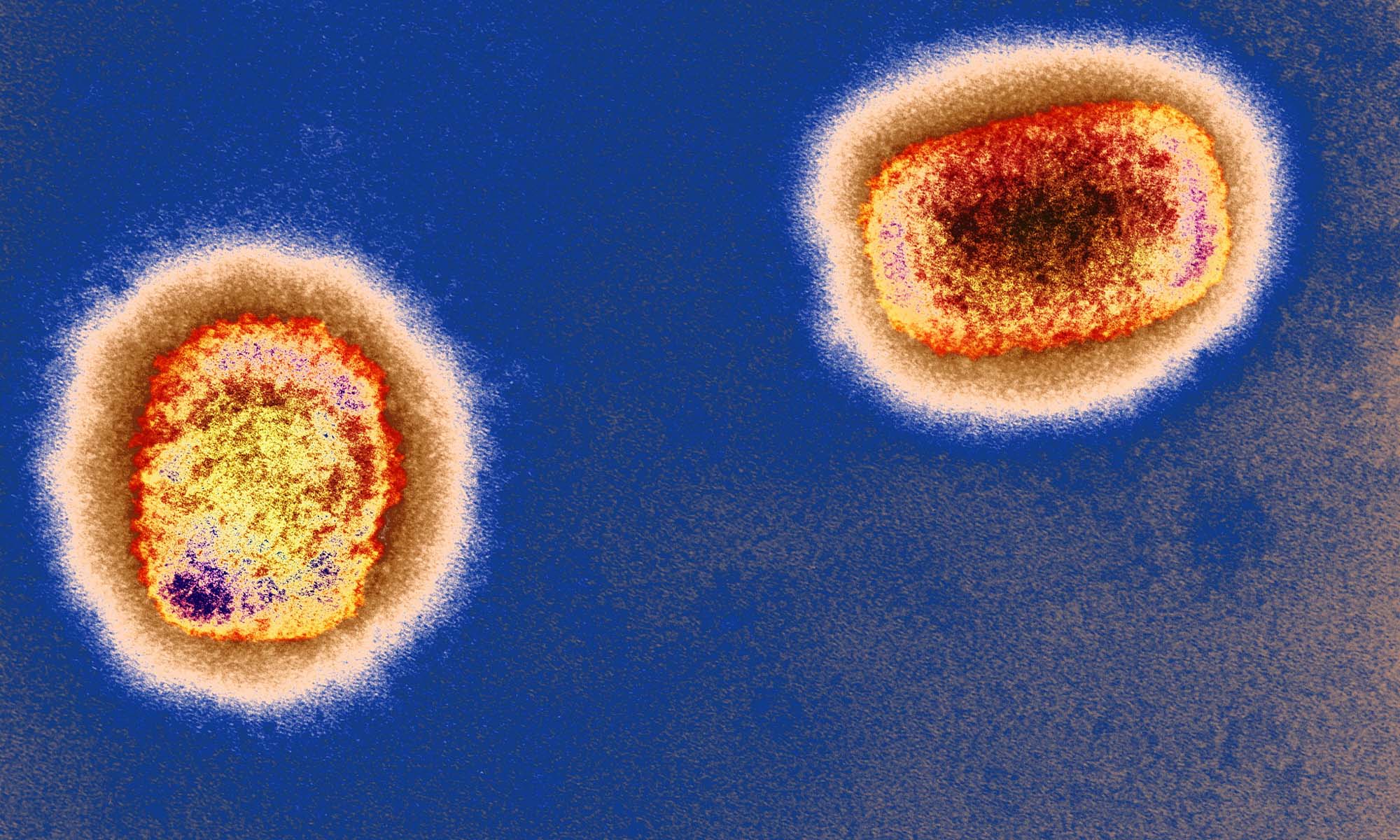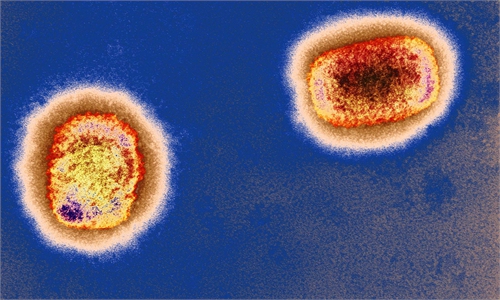
The monkeypox virus Photo:VCG
The outbreaks of monkeypox in Europe and the US caught public attention on Chinese social media platform recently along with increasing COVID-19 infections in some Chinese cities. While calling for preparations considering the risk of imported monkeypox cases into China, Chinese experts tried to ease public concerns, noting that the possibility of a large-scale monkeypox outbreak in the country is low.
Nine cases of the West African strain have been reported in the UK. Portugal has logged five confirmed cases, and Spain is testing 23 potential cases. Neither country has reported cases before. The US has also reported one case, media reported Friday.
Monkeypox is a virus transmitted to humans from animals with symptoms very similar to those seen in the past in smallpox patients, although it is clinically less severe, according to the World Health Organization (WHO).
Since first identified in humans in 1970 in the Democratic Republic of the Congo, it has rarely spread elsewhere, so this unusual spike of cases outside the African continent, which experts viewed as "rare," has triggered global concerns.
The rare cases outside Africa may mean a potential epidemic in these places. We should pay close attention to it, a Beijing-based Chinese immunologist told the Global Times.
The expert said that if necessary, China could apply quarantine measures against monkeypox on international arrivals from places facing increasing monkeypox infections.
But the virus does not pose a large threat to China, the expert noted, trying to ease public concerns. He explained that, despite a high fatality rate comparable to SARS, the monkeypox virus is less infectious.
An overall estimate case fatality of SARS is about 14 to 15 percent and the case fatality rate of smallpox can be as high as 30 percent.
The country also has very strict quarantine rules on imported animals, especially rodents where the virus originated from, experts noted.
China's successful experience in eliminating smallpox would also help the country act if monkeypox enters China's borders, experts noted.
China stopped vaccinating against smallpox in 1982. The country developed a smallpox vaccine in 1926 and eliminated the disease in 1961, 14 years earlier before the WHO declared that smallpox was eliminated in Asia.
Monkeypox typically comes with fever, rashes and swollen lymph nodes and may lead to a range of medical complications. It is usually a self-limited disease with the symptoms lasting from two to four weeks. Severe cases can occur. In recent times, the case fatality ratio has been around 3-6 percent, WHO said.
Monkeypox is transmitted to humans through close contact with an infected person or animal, or with material contaminated with the virus, WHO said, noting that the virus is transmitted from one person to another by close contact with lesions, body fluids, respiratory droplets and contaminated materials such as beddings.
The cases in the UK were predominantly among men who identified as gay, bisexual or men who have sex with men, the UK health authority revealed.
UK experts have also warned that cases outside Africa could suggest a novel means of spreading or a change in the virus, which is "all to be determined." But they noted that the possibility of a nationwide monkeypox epidemic like COVID-19 is low.
There isn't a specific vaccine for monkeypox, but a smallpox vaccine is reportedly up to 85 percent effective against monkeypox, according to WHO.
Some countries have stockpiles of the smallpox vaccine as part of pandemic preparedness, including the US, according to Reuters.

